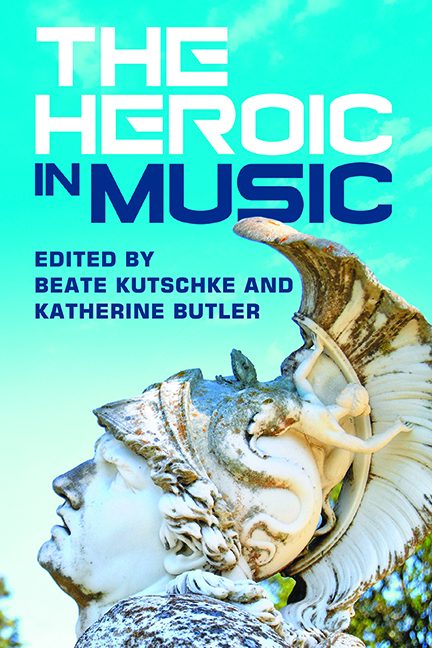Book contents
- Frontmatter
- Contents
- List of Illustrations
- Notes on Contributors
- Introduction
- Part I The Configuration of Heroic Music as a Tool for Shaping Moral and Political Identity
- Part II Music, its Ethics and Politics – Beyond ‘Beethoven Hero’
- Part III Heroic Music and its Moralities in Dictatorships and Post-Heroic Democracies
- Bibliography
- Index
10 - Soviet War Symphonies and the Heroic Russian Epic
Published online by Cambridge University Press: 16 July 2022
- Frontmatter
- Contents
- List of Illustrations
- Notes on Contributors
- Introduction
- Part I The Configuration of Heroic Music as a Tool for Shaping Moral and Political Identity
- Part II Music, its Ethics and Politics – Beyond ‘Beethoven Hero’
- Part III Heroic Music and its Moralities in Dictatorships and Post-Heroic Democracies
- Bibliography
- Index
Summary
In Western European art music, the heroic mode has associations with hunt and military topics, revolutionary themes, and struggle-to-victory narratives. While such features are equally familiar in Russian music, national traditions also fostered unique characteristics of heroic style within particular forms, which should be understood in relation to the country's politics and aesthetics, ideologies and iconographies. This chapter will examine the heroic in Russian music through one of its most overt and illustrative manifestations: the symphony of the Stalin era of the 1930s and 1940s, including the group of works composed at the time of the Great Patriotic War. It was during High Stalinism that demands for heroism reached their peak, and requirements for its representation were most ambitious, although aesthetically retrogressive. The genre of the symphony held a great deal of promise for both the administration and composers in that it presupposed heroic and classical qualities, allowed for an enormous breadth of expression, and offered a compositional challenge while avoiding the pitfalls of scrutiny that attended the setting of texts. The war would require heroic works with greater urgency, as it also encouraged increased concentration on national forms and traditions. I will propose that during these years composers drew more directly than before on the model of the Russian ‘epic’ symphony, bringing it to a monumental culmination.
A notable aspect of the Soviet Union was the ubiquity of heroic images. One reason for this was, as Angela Brintlinger has pointed out, the prevalence of wars:
The history of Russia in the twentieth century was, more than anything else, a history of war and the variety of its consequences… Wars both generate and require heroes. Thus what constituted the ‘heroic’ in Soviet Russia remained more central than it might have in a less war-torn and less thoroughly militarized country.
But in addition to fighting wars there was also the intention to build a new society, a process that Brintlinger perhaps underestimates by applying ‘war’ metaphorically, invoking ‘class war’ and claiming that ‘the Soviet state under Stalin had been at war with its own population’.
- Type
- Chapter
- Information
- The Heroic in Music , pp. 185 - 206Publisher: Boydell & BrewerPrint publication year: 2022



